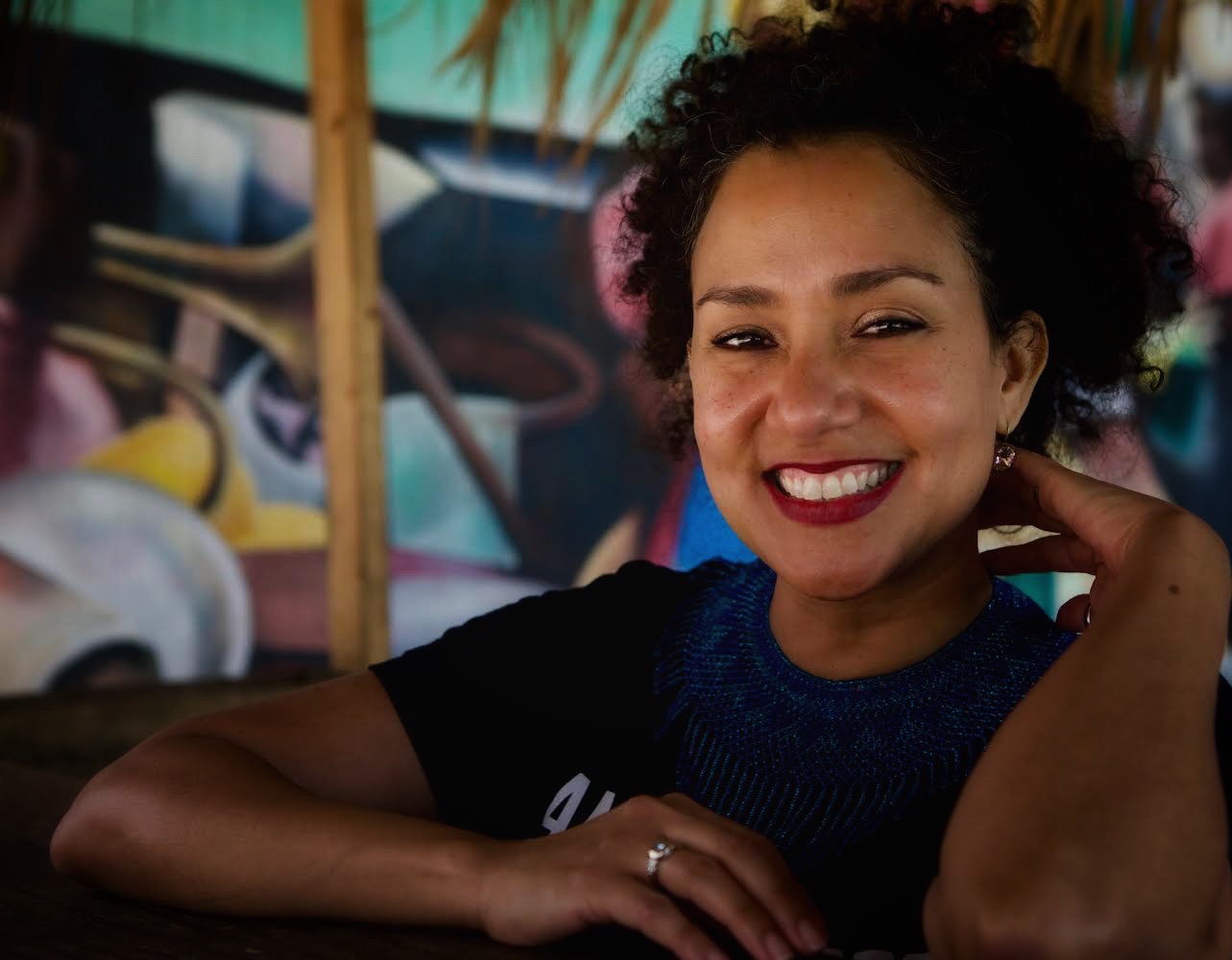From Public Persona to Public Advocate, Afro-Latinx Líderes Avanzando Fellow Annette Raveneau Uses Communications for Diverse Community Engagement
This past year, UnidosUS launched its first-ever Afro-Latinx Líderes Avanzando Fellowship. The program is geared to first-generation students pursuing their undergraduate, graduate, or doctoral degrees and recent college graduates who identify as Afro-Latinx and are passionate about racial equity and making meaningful change in their campus community, workplace, and beyond. ProgressReport.co is publishing profiles of the participants throughout the spring and summer.
¡Acción! On a video shoot or out community organizing, Annette Raveneau has always kept action at the center of her career. And lately she’s been channeling her experiences as a television correspondent and Latino affairs communications specialist into a quest to understand how her Afro-Latinx identity can be harnessed for policy and advocacy.
Raveneau was born in Panama and raised there until the age of 13, when her family immigrated to South Florida. Coming of age in Miami Beach, her family always insisted that she attend college, but their goals for her future were vague.
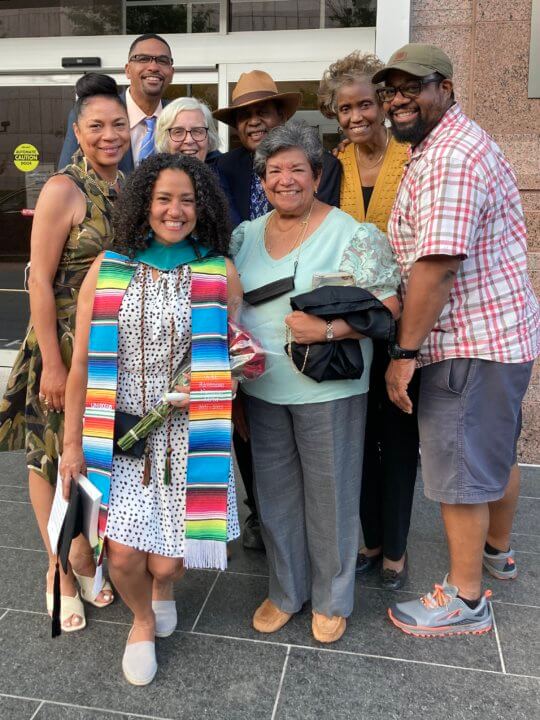
“Going to school was important for my family. Graduating wasn’t a translation to that,” Raveneau explains. Struggling with that sense of disconnect and with unclear direction from her academic advisors, Raveneau would spend seven years in community college.
Through that labyrinth, however, she became more resourceful and more experimental, attributes she put to good use when Univision producers invited her to audition as an on-camera talent for a sports show called República Deportiva, and months later, as a correspondent for a magazine-style series called Control.
At the time, Raveneau was finishing up her bachelor’s and supporting herself with one part-time job at her mother’s travel agency and another at a restaurant waiting tables. In fact, it was at the restaurant that Univision producers first took notice of Raveneau: she was young, vibrant, and innately curious.
But working as an on-camera correspondent would come with two major challenges: first, on shows like Control, Raveneau might have to try whatever extreme sport her interview was about, even skydiving. Second, she would need to ask her subjects questions—lots of them.
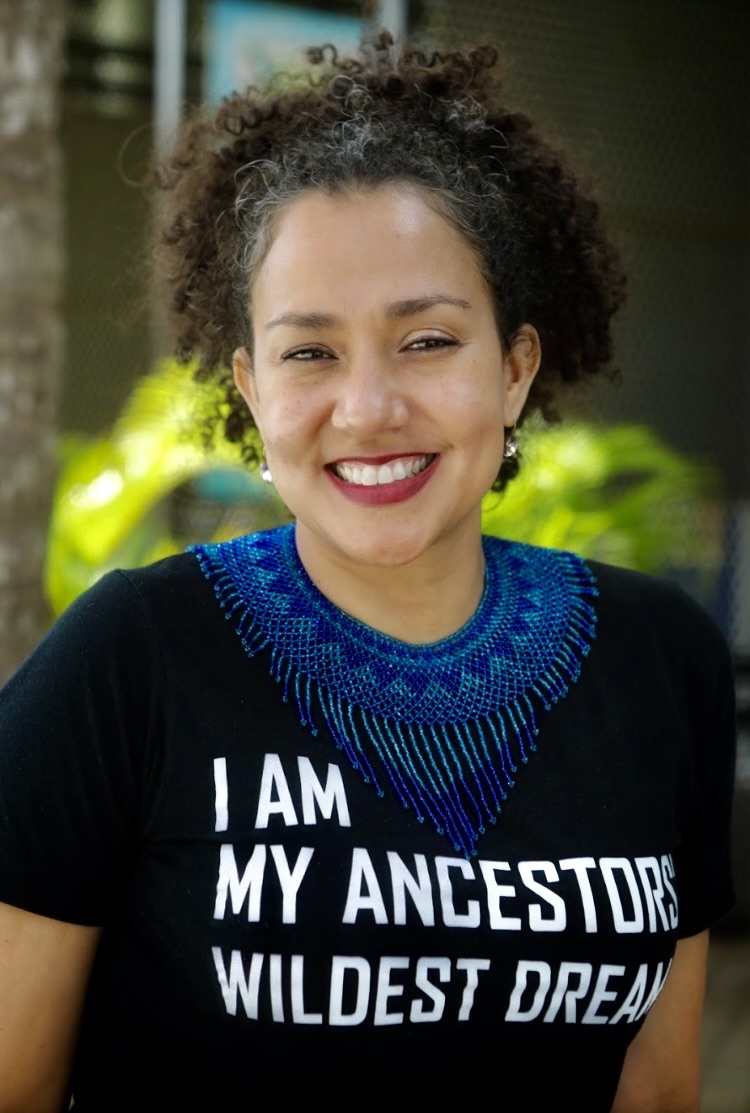
“By actively listening to the person I was interviewing, I would have 10 more questions from that one answer,” Raveneau says.
Raveneau’s on-camera talent caught the attention of Univision producers, who hired her as a television news producer and correspondent. Raveneau rose through the ranks at Univision, even going out on assignment to cover the 2002 FIFA World Cup in South Korea.

From Public Persona to Public Advocate
Around that time, just as Hispanic media was increasing its reach, the wider news industry was faltering. New media production technologies and the rise of the internet made it easier for media outlets to produce the news with fewer people. At the same time, outlets struggled to build up subscriber bases online and charge what they had once charged for advertising.
In this high-pressure climate, competition among correspondents became fierce. While Raveneau says she got a lot of love from a diverse cross section of her Latino audience, the predominantly white Hispanic television executives at Univision never offered her a full-time contract as on-camera talent. Then, as now, Mexicans represented the largest share of U.S. Latino audiences and consumers. Networks hired journalists with Mexican accents who did not appear to have Black or Indigenous heritage.
“I know I was not the only one being treated that way, but I find that the national audience was not given the opportunity of having my unique point of view and my lived experiences as an Afro-Latina immigrant in the news and shows they watched on television,” says Raveneau.
Raveneau had been in the news business for about a decade when the U.S. recession hit in 2007-2008. Her uncertainty and underpaid work as a freelancer were becoming increasingly exhausting.
“People outside would look at you and think you’re making money because you’re ‘famous’ and you’re on TV, but it was a struggle all the time,” says Raveneau.
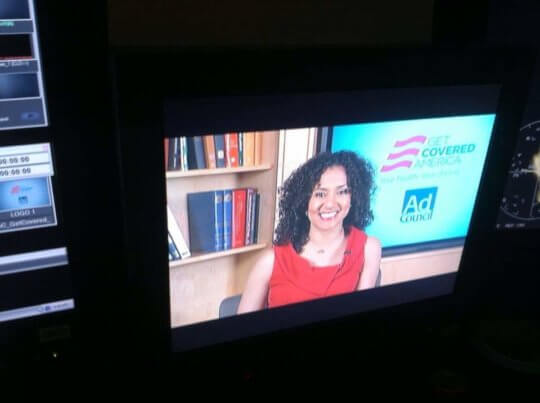
In 2008, she accepted a staff news role, her first TV job that offered health insurance, in Las Vegas, Nevada, working at the local Univision affiliate under the title of Assignment Desk Editor. However, most her duties were actually those of a general assignment reporter, weatherwoman, or producer. Just as she had in community college, Raveneau began to wonder where all this work was leading.
“I thought that the skills that I had as a reporter could be transferable,” she says.
Indeed they were. Raveneau was looking for her next move when she was awarded a journalism fellowship to spend several weeks in Germany with a group of U.S.-based reporters engaging in a comparative study of that country’s government and media system.
Around that time, she received an email from a prominent Latinx thought leader asking her if she would be interested in applying for a communications director position at a statewide health care nonprofit. She jumped at the opportunity.
“I really felt stuck in TV, and this opportunity was really what I needed,” she says. “Let me be clear: I did not know it at the time, but my Germany experience was pivotal to the next chapter of my career, not only for the upcoming job opportunities but also for my future policy and advocacy career.”
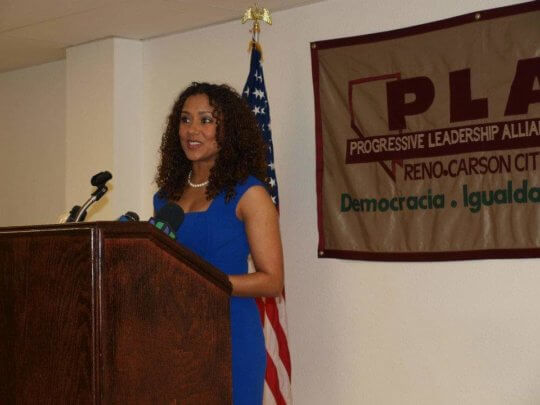
As the director of communications for the organization Know Your Care/Protect Your Care, Raveneau learned in depth how the Affordable Care Act of 2010, commonly known as Obamacare, benefits people with different health care needs. She organized community events, including health fairs, so that everyone in the community could make use of Obamacare services and learn how the law benefited them. Soon, she was transferring her on-camera skills to public speaking engagements at national conferences organized by UnidosUS and the League of United Latin American Citizens (LULAC). These speaking engagements enabled her to expand her professional network in Washington, D.C., where she would land a job as the national Latino press secretary and key state communications director for Enroll America, a national organization focused on helping the un- and under-insured population enroll in health coverage.
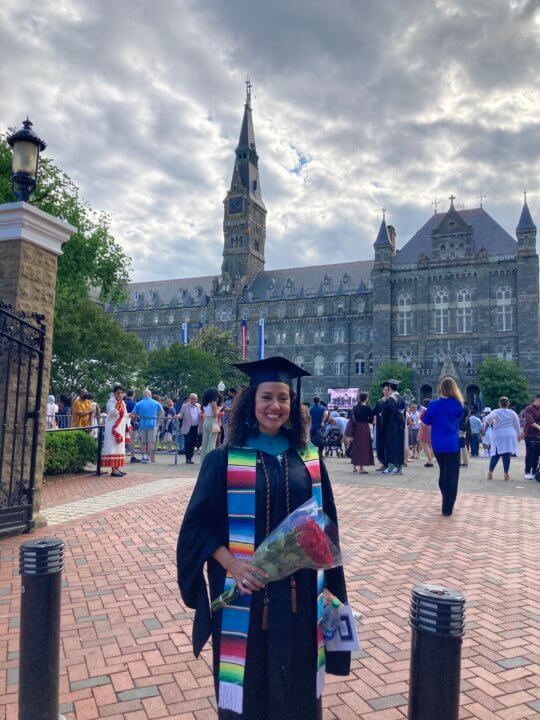
After earning her master’s in policy management at Georgetown University, she was recruited to work for The Pew Charitable Trusts, where she disseminated ocean conservation research and information about best practices from marine scientists and community leaders in Chile, Uruguay, Seychelles, Sri Lanka, and islands like Niue and Tristan da Cunha.
Just a few months after joining the UnidosUS Afro-Latinx Líderes Avanzando program, Raveneau was recruited to join Spitfire Strategies, a woman-founded strategic communications firm, as a vice president. In this capacity, she serves nonprofits and foundations focused on advancing social and economic justice and protecting the environment.
“We work with nonprofits and foundations that are doing social justice work, and I’m doing impact communications,” she explains, noting that her own experiences as an Afro-Latina, an immigrant, and a professional who has struggled to make ends meet give her a greater sense of awareness about the realities of the people Spitfire serves. But she also knows that each individual and each community has its nuances, and she won’t always know everything. That’s where her experience in journalism comes into play.
The Intersection of Storytelling and Policy
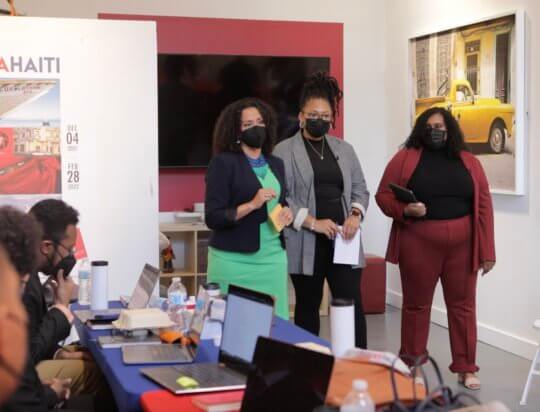
“I need to listen empathically, and not only to our clients, but to the audience that they’re trying to reach,” she says, adding that the Afro-Latinx Líderes Avanzando fellowship enhanced the policy and advocacy skills she needs to do that.
In fact, there are many parallels between her advocacy work and her experience as an Afro-Latinx Líderes Avanzando fellow. Although Raveneau wrote policy papers during her master’s program, she would not argue her case for an important cause directly with a U.S. representative until the fellowship. Raveneau used that opportunity to cowrite a policy memo and develop a presentation advocating for Bill S.2125, the Counseling Not Criminalization in Schools Act, which seeks to reform policing and disciplinary policies in schools that push Black and Brown children into the prison pipeline. Instead, the bill would provide Black and Brown children with the social and emotional support they need to confront the biases and discrimination they so often face.
Raveneau’s experiences as an Afro-Latinx Líderes Avanzando fellow coincided with similar projects she’s been producing for Spitfire. For example, she is currently helping to build an awareness campaign about a restorative justice model in which people who have caused harm participate in survivor-offender reconciliation. Raveneau is also working on another campaign to turn North and South Carolina, two historically segregated states, into a community where an increasingly diverse population feels like they belong.
And that’s how Raveneau’s many experiences have turned into new action. The Afro-Latinx Líderes Avanzando fellowship helped her not only to enhance the public advocacy skills she’s spent a career developing, but also to recruit new talent to work alongside her.
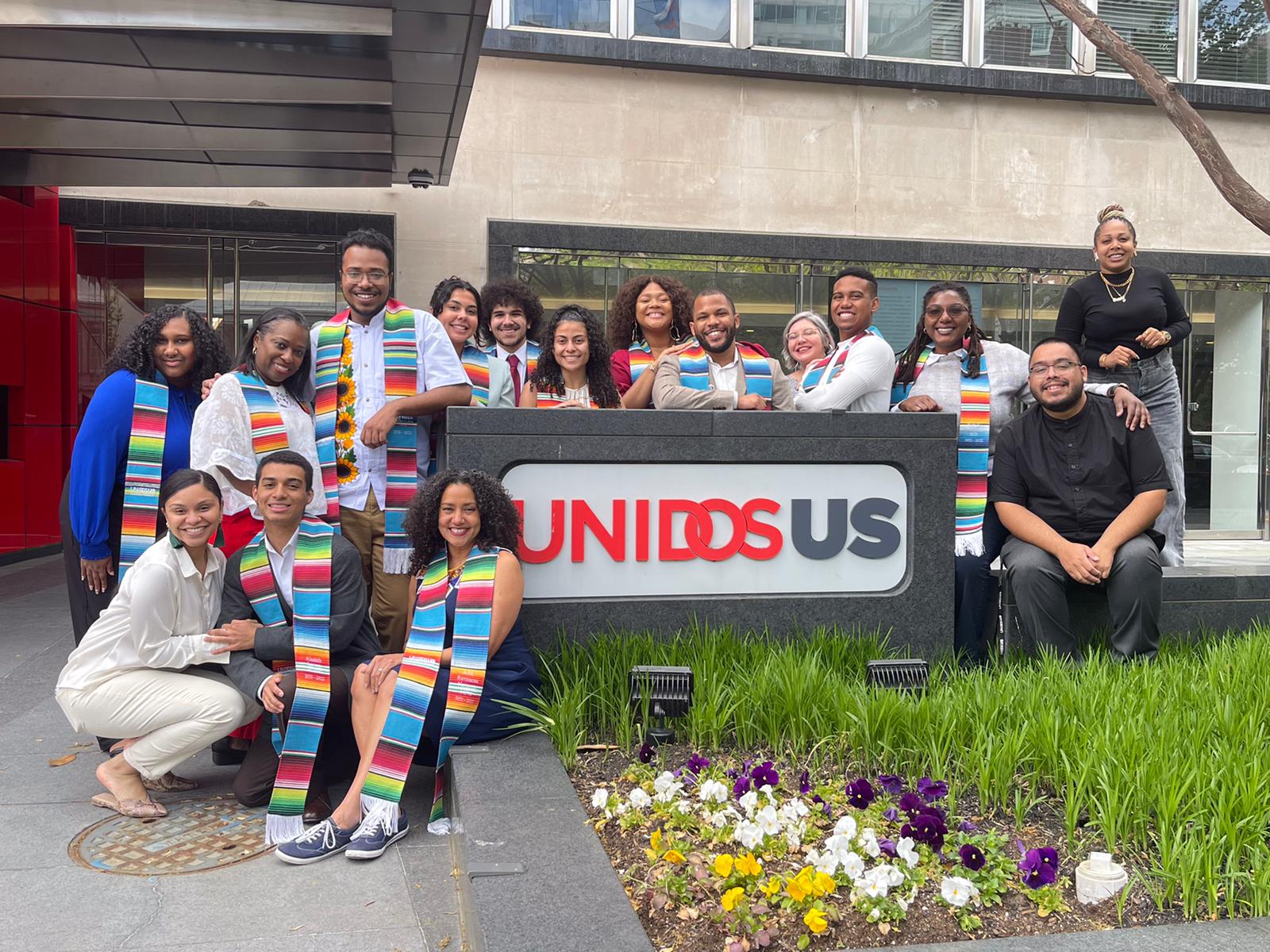
“I think it’s great that we are getting these tools so that we can incorporate them in our lives and in our future careers. I would love to continue to have relations not just with this cohort but with the fellows to come,” Raveneau says. “If Spitfire has any job offers, I’ll be looking to see who in my cohort are communications people, not only so that they can grow, but so that my organization can be more diverse.”
-Author Julienne Gage is an UnidosUS senior web content contributor and the former editor of ProgressReport.co. Gage produced the video alongside videographer Jayme Gershen and video editor Elnatan Melaku Mulugeta.

